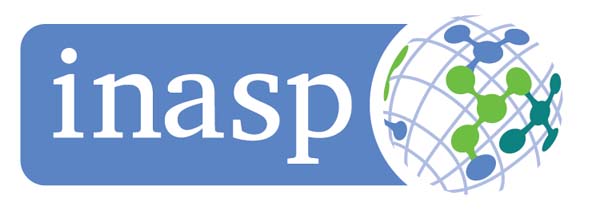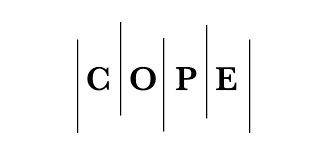Design and evaluation of two proposed techniques using DCT and LBP for Arabic "Kana Group” classification and recognition in digital images
DOI:
https://doi.org/10.29304/jqcsm.2025.17.32428Keywords:
digital images, Local BinaryAbstract
The article presents a detailed examination of two different algorithms designed to recognize the Arabic "Kana Group" of words in digital images, employing different feature extraction techniques: Local Binary Patterns and Principal Component Analysis (LBP-PCA) and Discrete Cosine Transform (DCT). The results obtained after testing all models trained using the proposed methods showcased the same classification quality metrics. Our findings demonstrate that the two proposed models yielded high classification quality metrics exceeding 98% for all criteria, including precision, TPR, accuracy, F1-score, thereby confirming the models' reliability for accurate and rapid recognition. While DCT outperformed LBP in most categories, all evaluation indicators for the word recognition accuracy were 100%, except for the term “اضحى “, which was erroneously classified as “امسى “at 8%. This lowered DCT's performance relative to LBP in this case, accounting for the overall diminished accuracy of the metric values for this technique.
Downloads
References
H. Mohamad, S. A. Hashim, and A. H. Al-Saleh, Recognize Printed Arabic Letter Using New Geometrical Features, vol. 14, no. 3. Indonesian Journal
of Electrical Engineering and Computer Science, (2019), pp. 1518–1524. Available: http://doi.org/10.11591/ijeecs.v14.i3.pp1518-1524
H. Lamtougui, H. El Moubtahij, H. Fouadi, and K. Satori, An Efficient Hybrid Model for Arabic Text Recognition, vol. 74, no. 2. Computers,
Materials & Continua, (2023), pp. 2871–2888. Available: https://doi.org/10.32604/cmc.2023.032550
M. Jain, M. Mathew, and C. V. Jawahar, Unconstrained Scene Text and Video Text Recognition for Arabic Script, ver. 1. arXiv, (2017). Available:
https://doi.org/10.48550/ARXIV.1711.02396
S. B. Ahmed, S. Naz, M. I. Raz, and R. Yusof, Arabic Cursive Text Recognition from Natural Scene Images, vol. 9, no. 2. Applied Sciences, (2019),
p. 236. Available: https://doi.org/10.3390/app9020236
R. M. Hussien, K. Q. Al-Jubouri, M. A. Gburi, A. G. Hussein Qahtan, and A. H. Duaa Jaafar, Computer Vision and Image Processing: The
Challenges and Opportunities for New Technologies Approach – A Paper Review, vol. 1973, no. 1. Journal of Physics: Conference Series, (2021), p. 012002. Available: https://doi.org/10.1088/1742-6596/1973/1/012002
.[6] F. Y. Bawazir, Pengenalan Pola Tulisan Tangan Aksara Arab Menggunakan Ekstraksi Fitur Discrete Cosine Transform Dan Klasifikasi Backpropagation Artificial Neural Network, vol. 3, no. 1. Jurnal Teknologi Informasi, Komputer, Dan Aplikasinya (JTIKA), (2021), pp. 43–50. Available: https://doi.org/10.29303/jtika.v3i1.127
Y. Hannad, I. Siddiqi, and M. E. Y. E. Kettani, Arabic Writer Identification Using Local Binary Patterns (LBP) of Handwritten Fragments, in Lecture
Notes in Computer Science, pp. 237–244. Springer International Publishing, (2015). Available: https://doi.org/10.1007/978-3-319-19390-8_27
P. M. Osina, Y. A. Bolotova, and V. G. Spitsyn, Text Detection Algorithm on Real Scenes Images and Videos on the Base of Discrete Cosine
Transform and Convolutional Neural Network, in International Siberian Conference on Control and Communications (SIBCON), pp. 1–4, (2017).
Available: https://doi.org/10.1109/sibcon.2017.7998591
A. A. Chandio, M. D. Asikuzzaman, M. R. Pickering, and M. Leghari, Cursive Text Recognition in Natural Scene Images Using Deep Convolutional
Recurrent Neural Network, vol. 10. IEEE Access, (2022), pp. 10062–10078. Available: https://doi.org/10.1109/ACCESS.2022.3144844
A. M. Mutawa, M. Y. Allaho, and M. Al-Hajeri, Machine Learning Approach for Arabic Handwritten Recognition, vol. 14, no. 19. Applied Sciences, (2024), p. 9020. Available: https://doi.org/10.3390/app14199020
Downloads
Published
How to Cite
Issue
Section
License
Copyright (c) 2025 Anwar Hassan Al-Saleh

This work is licensed under a Creative Commons Attribution-NonCommercial-NoDerivatives 4.0 International License.













